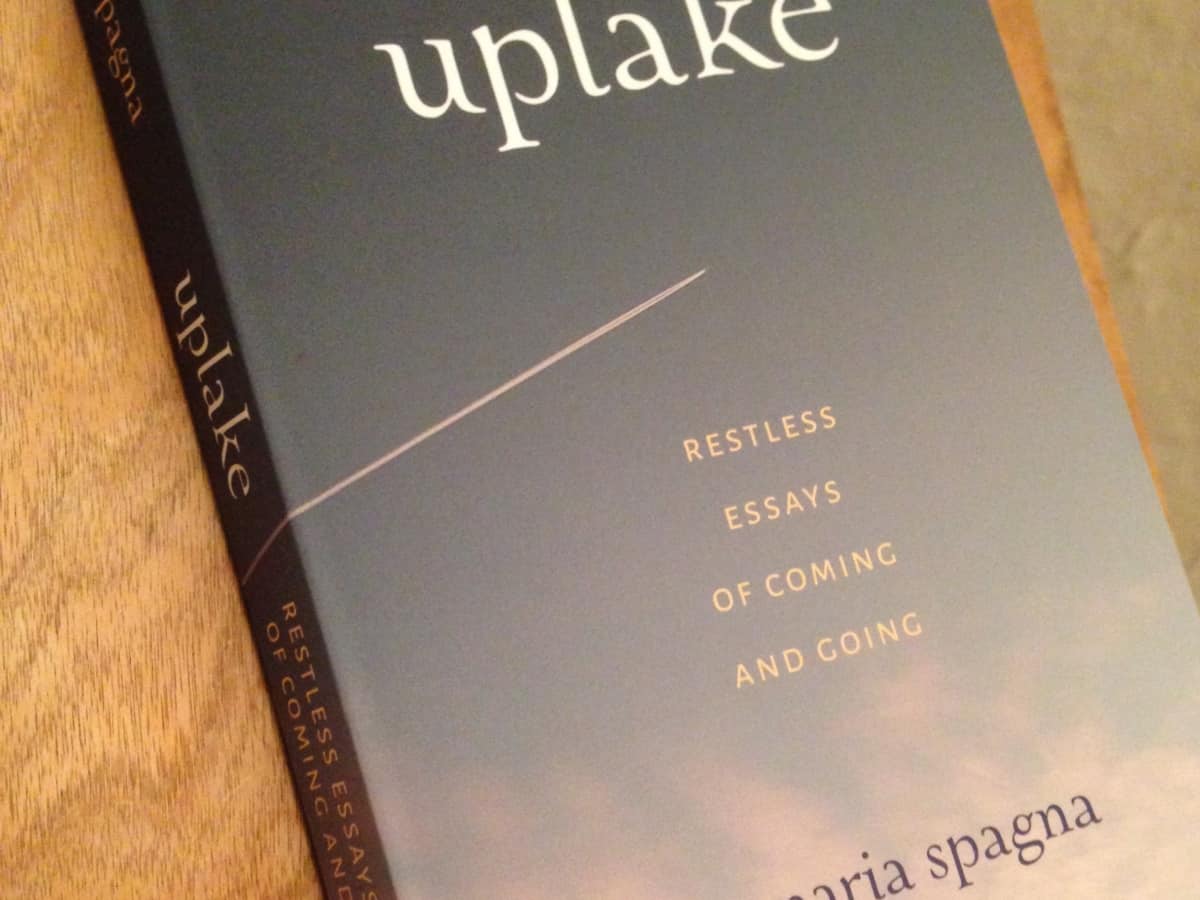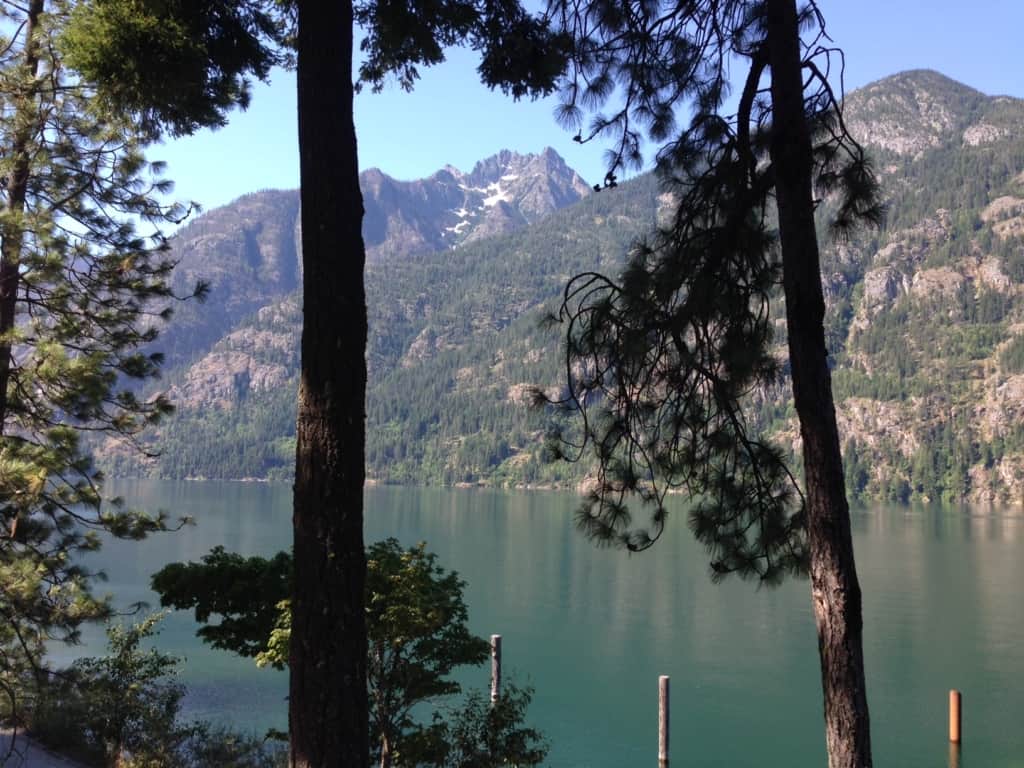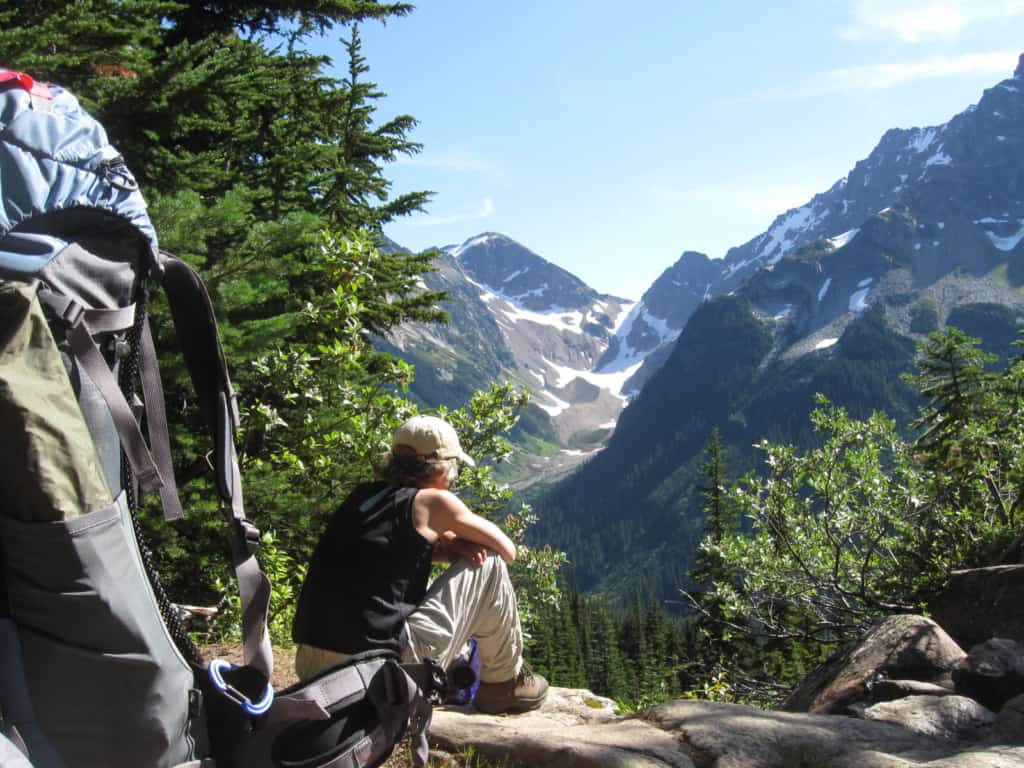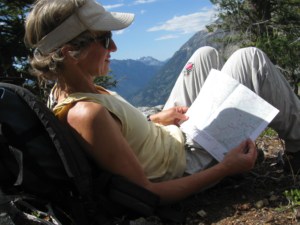
UPLAKE: Restless Essays of Coming and Going: Excerpt from Ana Marie Spagna
Here’s a story line. A boy grows up in an idyllic place, a small rural place, the plains of Nebraska, say, or small town North Carolina. What happens next? He moves away. His new perspective may cause him to grow nostalgic like Jim Burden in My Antonia or world-weary like George Webber in You Can’t Go Home Again but when he returns—sophisticated, citified, wizened—he sees the place anew.
Here’s another. A woman drops everything to go into the wild, to take a long hike and test her mettle, to confront grief or addiction or depression. What happens next? She moves back to the city, rejuvenated and renewed, and marries and has a family and lives happily ever after. It’s the archetypal journey as familiar to us as a three-chord rock song or a five-act play. We anticipate the resolution, the triumphant return, the chorus after the bridge.

Here’s another story. A girl grows up in sun-washed suburbs and moves to the woods, not just any woods but the most distant and remote she can find, a place where glaciers still carve and rivers still sculpt and the local black bear population outnumbers the humans. Then she stays.
That’s not a story. That’s stasis. Or maybe it’s commitment.
The problem with the word “commitment” is that it sounds so much like work or at least like a conscious decision. What about wonder? The kind that strikes you broadside when you see the first spawning Kokanee shimmering under the surface or the first yellow larch on a ridge top back lit by sunrise. There’s wonder in the smell of a campfire across the lake, the rolling carpet rump of a bear spooked on a trail run, the half drunk swoop of Pileated woodpeckers, in the way rock spire shadows stretch across a snowy bowl and ice chunks form on the river like floating mirrors, tinkling, and dogwood flowers appear in spring, white and showy, then turn papery and drop.

There’s wonder, too, in the sadness when the last maple leaf dangles on a limb and the last seasonal neighbors wait for the ferry, bags packed. There’s wonder even in the sameness, the plotlines that recur predictable as sit-coms or soap operas—wildlife encounters and wild exuberant parties—and those that escalate in the age of climate change: fires and floods, big snows and hot summers.
Meanwhile, each morning I drink coffee and pull on my running shoes. Usually, I don’t want to go. I tell myself: I can skip this one day. It’s too cold or too hot or too wet or too dusty. I have work to do. But this is the only meditation practice I have, the dregs of the prayers I was taught as a child. Name what you see. Offer gratitude. Not every story is a circle. Sometimes it’s just one foot in front of the other.

Ana Maria Spagna lives with her wife, Laurie, in Stehekin, Washington, a remote community in the North Cascades accessible only by foot, boat, or float plane. She is the author of several award-winning nonfiction books including Reclaimers, stories of Indigenous women reclaiming
sacred land and water, 100 Skills You’ll Need for the End of the World (as We Know It) a humor-infused exploration of how to live more lightly on the planet, the memoir/history Test Ride on the Sunnyland Bus: A Daughter’s Civil Rights Journey, winner of the River Teeth literary nonfiction prize, and three essay collections, Potluck, Now Go Home, and most recently, Uplake: Restless Essays of Coming and Going. Her first novel for young people, The Luckiest Scar on Earth, about a 14 year old snowboarder and her activist father, appeared in 2017. Ana Maria’s work has been recognized by the Society for Environmental Journalists, the Nautilus Book Awards, the Pacific Northwest Booksellers Awards, and as a three-time finalist for the Washington State Book Award. Her essays have recently appeared in Orion, Ecotone, Creative Nonfiction, terrain.org and High Country News. After working fifteen years on backcountry trail crews for the National Park Service, she turned to teaching creative nonfiction in the MFA program at Northwest Institute of Literary Arts, at Whitman College, and now at Antioch University, Los Angeles.
Special Thanks to Ana Marie Spagna and University of Washington Press (2018) for this piece of writing. Don’t forget to see Ana Marie on May 11 at Village Books in Fairhaven!


So lovely to see an excerpt from Ana MariA